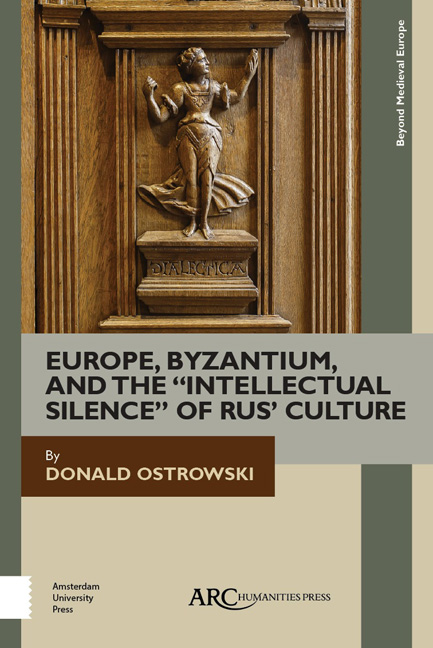3 - Why Was There an Abelard?
Published online by Cambridge University Press: 06 January 2021
Summary
The question “Where was the Russian Abelard?” is not such a simple one to answer. It could very well be rephrased, “Why was there an Abelard at all?” For an answer to this last question, we should look at Abelard's own writings and the influences on him. In that way, we may get some clues as to why Abelard appears where he does and when he does.
In Paris, Peter Abelard attended the lectures on logic and rhetoric of William of Champeaux, with whom he came into conflict, and the lectures on theology of Anselm of Laon, who expelled Abelard from his school in 1113.2 Abelard presents his own view of universals within the context of his Glosses on Porphyry, a com-mentary on Boethius's translation of and commentary on Porphyry's Isagoge. In each of his four major works on logic, parts of which have been lost, Abelard discusses Porphyry's work. Porphyry was a pagan Neoplatonist and had written an Introduction to the Categories of Aristotle (called by medieval writers the Isagoge), which became a standard manual on logic in medieval Western Europe. The Canadian translator Edward W. Warren stated that the influence of the Isagoge is attribut-able: “(1) to its opening page where Porphyry lists a few deeper issues concerning the kind of existence enjoyed by generic and specific terms, (2) to its translation by Marius Victorinus and by Boethius, and (3) to its publication as the initial treatise in subsequent Latin editions of Aristotelian logical works. The Isagoge became a standard preface to work in Aristotle's logic.” John of Salisbury (ca. 1115– 1180), in his Metalogicon, describes how Porphyry was used in the twelfth century: “One who withdraws what he never deposited, and harvests what he never sowed, is far too severe and harsh a master, as also is one who forces (poor) Porphyry to cough up the opinions of all philosophers, and will not rest content until the latter's short treatise teaches everything that has ever been written.” The hyperbole notwithstanding, it is well documented that the Isagoge was a work that heavily influenced Western European thought as the result of its being the equivalent of an introductory textbook to Aristotle's logic.
- Type
- Chapter
- Information
- Publisher: Amsterdam University PressPrint publication year: 2018



